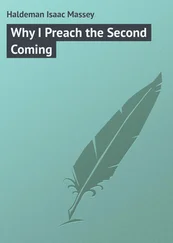The words were still clear on the thick yellow page but the paper crumbled like bread and a bakery smell rose in her nostrils. Words surely have meanings, she thought, and there is my trouble. Something happens to words coming to me from other people. Something happens to my words. They do not seem worth uttering.
People don’t mean what they say. Words often mean their opposites.
If a person says to you: I hate to tell you this, but— she doesn’t hate to tell you. She likes to tell you. This is a good place to make a new start with words. A man wrote these words over fifty years ago and here they’ve been ever since, lying in a dark cellar. She read the phrase aloud: a tall man with a deeply tanned face. It sounded strange in the dead silence and the warm Carolina sunlight.
A large brindled dog came down from the trail, straight across the ruins, sat down and looked at her, not panting and not wagging his tail. He did not have a collar. His head was as wide and flat as an anvil. No doubt he belonged to a hiker but he did not leave. His clear hazel eyes looked from her to the book and back to her. An orange tuft above his eye moved like a man cocking an eyebrow. When she met his gaze, he cocked the other eyebrow and looked at a chipmunk. Can a dog be embarrassed?
She opened The Trail of the Lonesome Pine — it smelled more of school library than bakery — and read:
Knowing nothing of the ethics of courtship in the mountains — how, when two men meet at the same girl’s house, “they makes the gal say which one she likes best and t’other gits”—Hale little dreamed that the first time Dave stalked out of the room, he threw his hat in the grass behind the big chimney and executed a war dance on it, cursing the blankety-blank “furriner” within from Dan to Beersheba.
Yes, that’s it, she thought, forgetting about the dog. Ordinarily people have ways of doing things — like the people who lived in this house long ago and read this book. It was up to the “furriner” to catch on. As for her: either she had not caught on to the way people do things, or people did not know what they were doing and there was no use trying to catch on. In either case, this seemed as good a place as any to make a start.
Make a start at what? For one thing, she could read these books for more clues, go to town, visit the public library, obtain a library card, take out more books, speak to the librarian, sit on the bench, observe people, speak to them, and either catch on to their ways or, if they didn’t have any ways, make up one’s own.
She examined the window. It must have been a glass transom for a double door, for it had a big brass latch and it was almost too heavy to wrestle up the steps and through the vines. Panting, she propped it against a chimney and knelt for a look. It was not broken. Cellar rootlets stuck to the glass. No, not rootlets, they were lead cames. When she leaned over to see if the lead went through, the sun made dull colors through the dust. The panes were stained glass.
Dragging the transom to the foot of the path, she leaned it under the dripping rock and went to get soap, rag, and moss. The dog followed, his serious hazel eyes attentive but unable to meet her gaze.
It gave pleasure to make a soft soaped Brillo pad of moss and scrub every inch of glass, frame, lead, and brass, doing one camed section at a time and rinsing it under the trickle. The water was not cold and had a mineral reek.
Downhill and easy going to the greenhouse, but her arms trembled as she pushed the transom up the wall until it rested on the concrete ledge. Now the trick was to stand on the ledge and slide the transom up the first slope of glass without falling off. It couldn’t be done. There was no getting a purchase on it. But it was possible to stand on the ground and push it up with a forked stick of dogwood until the transom was balanced on the gambrel. Then, half propping, half holding stick on ledge, she climbed up beside it. Now the angle was right. She could lean forward against the lower slope, ah safe! both hands free to push transom past the gambrel angle and let it down carefully on the upper slope — but there was no sliding it laterally now, it must be lined up carefully.
Hope rose in her, then a confidence, that the random fit of transom to hole would somehow work out better than if she had measured hole and designed window to fit. It did. It was better than a fit. The frame of the transom overlapped the steel sash of the greenhouse, the scuffed wood engaging rusty metal all around, and weighted down in a friction bond so strong she couldn’t even budge the transom toward her down the slope.
A fit by chance is romance, she said to herself.
Climbing down, she was already thinking how to fasten it more securely. A strong wind could blow it off. Perhaps a few nails in the frame, the nails above wired to the iron fleurs-de-lis and below to the mechanism of the window vents.
Tired now, she stretched out on her bunk. The afternoon sun shone directly on the upper slope of stained glass. The light broke into colors which filled the little room. Perhaps she had stirred up a suspension from the potsherds and the moss. The gold was like dust in the air and the violet made a vapor.
She gazed up at the transom. A cornucopia dumped out its fruit and flowers, purple grapes, yellow corn, scarlet strawberries, golden pumpkins, boxy pink rhododendron, the harvest tumbling down a blue sky to a green earth where fascicles of pine needles spelled out Autumn. Rhododendron! Then the stained glass had been designed for this place, my place. What had happened to her Winter, Spring, and Summer? Carted off by Tut tomb robbers. But perhaps they and many other treasures are hidden in the cellar. Kegs of nails, books, such as the Swiss family of Robinson found on their wrecked ship.
Something bumped the potting table. She leaned out. The dog was turning round and round in the moss to make a bed.
She took a nap.
When she woke, violet vapor swarmed in her eyelashes. She took out her Scripto pencil and notebook and wrote:
I am here.
I need from town: milk, matches, dog food, saw. There is plenty of stove wood, dead chestnut I think. When did all the chestnuts die? What about bathing? How to get the stove up from the basement? What kind of stove is it? How does a stove work? Does it burn wood or coal? Does it heat water?
I need to make a living. I do not have a house but I have a greenhouse. I can live here and either get a job in town or make a living from the greenhouse. How do you make a living in a greenhouse? With greens.
I need to remember what I knew when I wrote to myself in this notebook, for example, that this is my place. Because now I can only remember things after I see them (somewhere I must have worked with stained glass, knew about cames).
In order to make a living I must remember what I can do.
Remember. Start at the beginning. My name is Allison. I was born in nineteen-fifty-something, sixty-something?
Try.
The first thing I remember is my embarrassment with strangers. No, embarrassment for strangers. They seemed so vulnerable. What if one should hurt their feelings? Once as a child when I was walking home from school I stopped to talk to a colored maid hanging out wash. She seemed very nice. But I began to worry how to break off the conversation and leave. I could not think of a way that might not hurt her feelings. So I had to wait until she finished hanging out the wash and went inside.
Very well, start at the other end. Yesterday. Last week.
After you make a living, then what do you do? How do you live?
When she leaned back on the knapsack pillow wedged into a corner of glass, a ruby swatch of light fell across her face. The down on her cheek turned fiery.
Читать дальше












